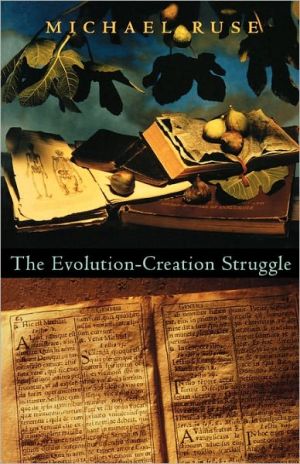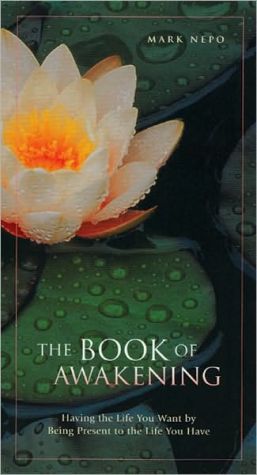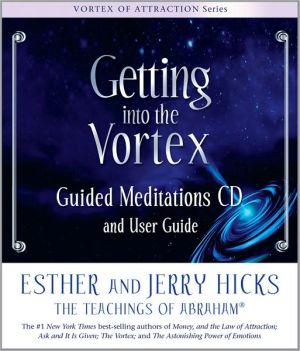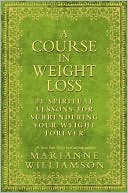The Evolution-Creation Struggle
Creation versus evolution: What seems like a cultural crisis of our day, played out in courtrooms and classrooms across the county, is in fact part of a larger story reaching back through the centuries. The views of both evolutionists and creationists originated as inventions of the Enlightenment—two opposed but closely related responses to a loss of religious faith in the Western world.\ In his latest book, Michael Ruse, a preeminent authority on Darwinian evolutionary thought and a leading...
Search in google:
Creation versus evolution: What seems like a cultural crisis of our day, played out in courtrooms and classrooms across the county, is in fact part of a larger story reaching back through the centuries. The views of both evolutionists and creationists originated as inventions of the Enlightenment—two opposed but closely related responses to a loss of religious faith in the Western world.In his latest book, Michael Ruse, a preeminent authority on Darwinian evolutionary thought and a leading participant in the ongoing debate, uncovers surprising similarities between evolutionist and creationist thinking. Exploring the underlying philosophical commitments of evolutionists, he reveals that those most hostile to religion are just as evangelical as their fundamentalist opponents. But more crucially, and reaching beyond the biblical issues at stake, he demonstrates that these two diametrically opposed ideologies have, since the Enlightenment, engaged in a struggle for the privilege of defining human origins, moral values, and the nature of reality.Highlighting modern-day partisans as divergent as Richard Dawkins and Left Behind authors Tim LaHaye and Jerry B. Jenkins, Ruse's bracing book takes on the assumptions of controversialists of every stripe and belief and offers to all a new and productive way of understanding this unifying, if often bitter, quest. Michael G. Loudin and Nicanor Austriaco, O.P. - The Thomist Should be required reading for anyone seeking better to understand one dimension of the culture wars that have preoccupied American society.
1Christianity and its discontents72From progress to evolution283Growth of a pseudoscience424Charles Darwin645Failure of a professional science836Social Darwinism1037Christian responses1298Fundamentalism1469Population genetics16810Evolution today19011Nature as promise21412Earth's last days?236
\ American Biology TeacherI found this book enjoyable and would recommend it to anyone interested in the history of the evolution-creation debate...Ruse's arguments are both persuasive and enlightening. He highlights how evolution is historically intertwined with religion, literature, wars, socioeconomic theory, philosophy, and politics.\ Is it any wonder that evolution is such a controversial topic to this day?\ — Meghan A. Guinne\ \ \ \ \ \ American Scientist[This is] a carefully researched and cogently argued examination of this long-standing controversy by noted philosopher of science Michael Ruse. An observer of and participant in the debate on the topic for the past three decades, Ruse offers his readers historical and philosophical insight into the issues and ideas involved.\ — George E. Webb\ \ \ \ Catholic News ServiceBy concurrently investigating evolutionary and creationist histories, and their interrelationship, Ruse seeks to bring light to our confusion and perspective to what is actually taking place.\ — Wayne A. Holst\ \ \ \ \ \ Dallas Morning NewsA rich, thoughtful overview.\ — Jerome Weeks\ \ \ \ \ \ DiscoveryThis well-written and accessible book is aimed at anyone who is puzzled, as the author was, by the extreme polarization between evolutionists and creationists. How did it arise, and are the two positions as irreconcilable as most of their adherents (and many others) seem to believe?\ — Athena Ogden\ \ \ \ \ \ Globe and MailThe argument between evolutionists and creationists, Michael Ruse says, is not a debate between science and religion, but one between rival religions the origins of which go back to the Enlightenment. 'Evolutionism' and 'creationism' denote complexes of ideas that surround the concepts of evolution and creation themselves. Ruse has bravely written a book that could offend all parties, and fundamentalists of all stripes. But for those willing to examine their own convictions, The Evolution-Creation Struggle offers a new perspective on an important contemporary debate.\ — Alan Batten\ \ \ \ \ \ NatureA prerequisite of progress in this cultural struggle is that we should recognize the metaphysical assumptions underlying dogmatic forms of scientific naturalism, and be willing to investigate the concerns that motivate criticism. Ruse has done his best to reveal both.\ — John Hedley Brooke\ \ \ \ \ \ New Scientist[An] accessible, skilfully written book.\ — Karen Armstrong\ \ \ \ \ \ New York MagazineMichael Ruse, a philosopher of science at Florida State University, is one of the most stimulating writers on the never-ending cultural debate over evolution. Here, this self-professed 'ardent Darwinian' arrives at a surprisingly sympathetic view of the anti-Darwin crowd. They may be wrong, but they're not quite as crazy as we smugly imagine.\ — Jim Holt\ \ \ \ \ \ New York Times Book ReviewRuse sweeps readers through three millenniums of evolutionism and proto-evolutionism, starting with the Old Testament, which introduced the idea of historical change into a world where time had been changeless. He passes through Plato, Aristotle, Aquinas and the Reformation before stopping for a long visit with Charles Darwin. Darwin believed in a Designer until he discovered natural selection, the continual culling of less fit forms of life that drives evolution forward. Even then, he didn't reject God altogether. He became a deist, arguing that a God who operates through impersonal laws has more grandeur than one who constantly meddles. But evidence of divine indifference (and, some say, the death of his 10-year-old daughter) eventually drove him to agnosticism.\ — Judith Shulevitz\ \ \ \ \ \ Science and Christian BeliefThe Evolution-Creation Struggle is not a manual providing resolutions to deeply held positions nor a pastoral guide for nurturing bruised evolutionists or seething creationists; rather it is a series of excavations of inadequate and confusing assumptions by a philosopher who professes no religious commitment but who has thought and read deeply about the issues involved. I recommend it as a valuable account of how we have got to where we are and as a possible signpost for going forward.\ — R. J. (Sam) Berry\ \ \ \ \ \ Science EducationIn view of all that has been written, one might wonder what more there is to be said. Michael Ruse's The Evolution-Creation Struggle represents a genuinely fresh perspective. Ruse, an eminent and well-respected historian and philosopher of biology, has over the course of several decades established himself as a vocal advocate for evolution...The task of Ruse's book is to figure out why the evolution/creation debate is so hotly disputed in the American context, why so many otherwise intelligent people are in such complete disagreement about the scientific status of evolution and creation science. Ruse's answer, in short, is that the debate reflects two fundamentally different reactions to a crisis of faith that started at least 150 years before the publication of Darwin's Origin of Species. After reviewing the history of evolutionary theory against the backdrop of this larger crisis, Ruse draws several lessons he suggests may provide a way beyond the impasse that currently exists between advocates on the two sides...It is certainly true that greater insight into the reasons why some Christians feel threatened by evolutionary theory is a necessary step to any reconciliation between these two opposing camps, and Ruse's treatment is particularly useful in clarifying why the issues have become so heated in the American context. For science educators, Ruse's analysis is insightful and entertaining. It is one of a very few books that is accessible to an introductory student while nevertheless providing a sophisticated perspective of value to scholars in this area.\ — David Rudge\ \ \ \ \ \ The GuardianRuse argues compellingly that 'evolutionism and evangelicalism were, both, new answers to a new problem: the threatened loss of faith.' His thesis is that the struggle is not one between science and religion, but between two religions, 'siblings' born of the 19th-century loss of faith. This wonderfully readable book is full of insights drawn from many years on the frontline of this bitter ideological conflict.\ — P. D. Smith\ \ \ \ \ \ The ThomistShould be required reading for anyone seeking better to understand one dimension of the culture wars that have preoccupied American society.\ — Michael G. Loudin and Nicanor Austriaco, O.P.\ \ \ \ \ \ Times Higher Education SupplementMichael Ruse is a well-known philosopher who has spent his professional life analysing clashes over evolution and contributing to the debate on the side of science. This excellent and accessibly written book is based on his deep and sympathetic appreciation of both sides. I learnt a lot from it...Anyone who wants to understand the debate should read this book.\ — Harry Collins\ \ \ \ \ \ Library JournalRuse, a philosopher of science (Florida State Univ.), has supported evolutionary biology for decades with perceptive accounts of the cultural factors involved in the very human effort to understand the origins of life. This volume's strengths lie in Ruse's detailed explanation of the common origins of evolutionism and creationism in the Enlightenment's crisis of faith and in his description of the Victorian social forces before and after the publication of Darwin's The Origin of Species. He provides a brief history of fundamentalism and of the establishment of evolutionary biology as a professional science during the 1930s and 1940s. Ruse brings the struggle up-to-date by describing the roles of such partisans as evolutionist Richard Dawkins and "Intelligent Design" proponents. Finally, he makes the case that while creationists misunderstand science, some scientists have made evolution into a "secular religion" and that both these factors are sources of cultural tension. Like Karl W. Giberson and Donald A. Yerxa's Species of Origins, this book takes a nonpolemical approach, which is rare. Highly recommended.-Walter L. Cressler, West Chester Univ. Lib., PA Copyright 2005 Reed Business Information.\ \








